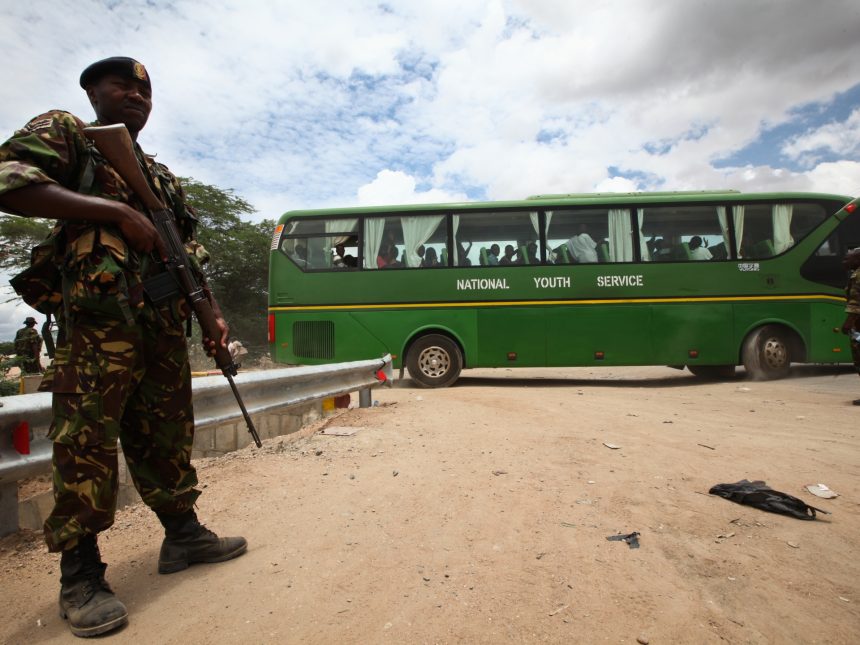[ad_1]
Al-Shabab’s ongoing violence in Kenya further delays border reopening as the two countries’ tumultuous relationship intensifies.
Kenya will yet again delay reopening its border with neighbouring Somalia because of a “wave of attacks” it blames on the al-Qaeda-linked al-Shabab group, Interior Minister Kithure Kindiki said on Wednesday.
In May, Kindiki and his Somali counterpart Mohamed Ahmed Sheikh Ali announced the intent to reopen the borders after high-level consultations in Nairobi and end a 12-year barricade that began in 2011 when Kenya launched an operation to fight the influx of al-Shabab fighters into its territory.
But in recent weeks, more than a dozen people including eight police officers have been killed in separate incidents blamed on the rebels.
“The government will delay the planned phased-out reopening of the Kenya-Somalia border points to facilitate comprehensive and conclusive handling of the recent wave of terror attacks and cross-border crime,” Kindiki wrote on Twitter.
How did things get to this point?
Al-Shabab has been fighting for more than a decade to topple Somalia’s central government and establish its own rule based on its strict interpretation of Islamic law.
In 2011, Kenya sent troops into Somalia to combat the rebels, and it is now a major contributor of troops to an African Union peacekeeping contingent in its neighbouring country.
That contingent, known as the African Union Transition Mission in Somalia (ATMIS), has been part of coordinated military operations and air strikes with the United States and local clan militia, helping to retake chunks of territory from al-Shabab.
Despite their shared fight against the militants, Kenya and Somalia have had a tumultuous relationship in recent years.
There was a maritime border row as well as accusations from Mogadishu that Nairobi was meddling in its affairs. Meanwhile, Nairobi has accused Mogadishu of using it as a scapegoat for its own political and security problems.
Somalia severed diplomatic ties in December 2020 after Kenya hosted the political leadership of Somaliland, a breakaway region not recognised as independent by the central government in Mogadishu. In October 2021, the United Nations’ top court handed control of most of the vast area to Somalia, but Kenya rejected the ruling.
Al-Shabab has also carried out a number of attacks in Kenya, which security analysts say are efforts by the rebels to pressure Kenya into withdrawing its troops from the peacekeeping missions in Somalia.
In 2015, a massacre at Garissa University left 148 people, mostly students, dead.
What happens next?
In a joint statement published this May, Kenya’s Kidiki and Somalia’s Ali said their discussions revolved around the need for shared cross-border intelligence and enhancement of law enforcement capacity to man the borders in order to facilitate ease of trade, mobility and movement of people.
The initiative, dubbed “Deris Wanaag” which is Somali for “Good Neighbourliness”, is funded by the United Kingdom with the aim of finding a lasting solution to perennial instability in the Horn of Africa region.
The borders at Mandera, Liboi and Kiunga on the Kenya side were to have been reopened in phases over a 90-day period.
With the latest delays, the Deris Wanaag initiative is now shrouded in uncertainty.
[ad_2]
Source link









